Elementary Phonics Worksheets Activities With Answers for Ages 3-6
11 filtered results
-
From - To
Discover our engaging collection of Elementary Phonics Worksheets and Activities designed specifically for children ages 3-6. These interactive resources help young learners develop essential phonetic skills through a variety of fun exercises. Our worksheets feature colorful illustrations and captivating activities that stimulate imagination while reinforcing letter sounds and blending techniques. Each activity is complete with answer keys to support both educators and parents in tracking progress. Whether in the classroom or at home, these phonics resources provide the perfect foundation to enhance early literacy skills, making learning enjoyable and effective. Start your child’s phonics journey today!
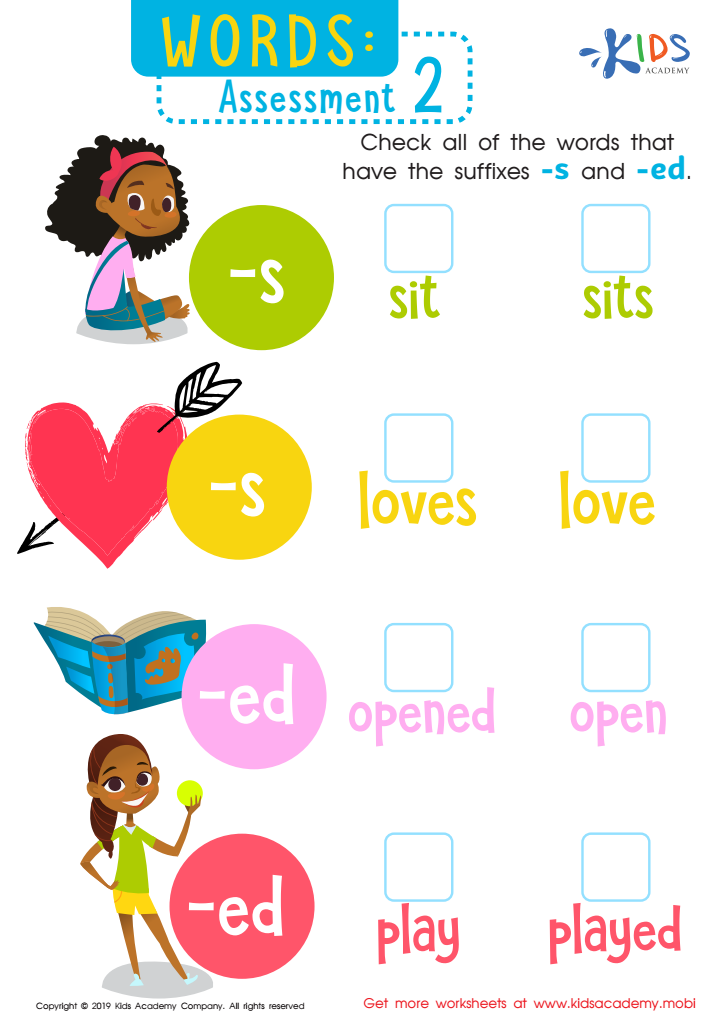

Words: Assessment 2 Worksheet
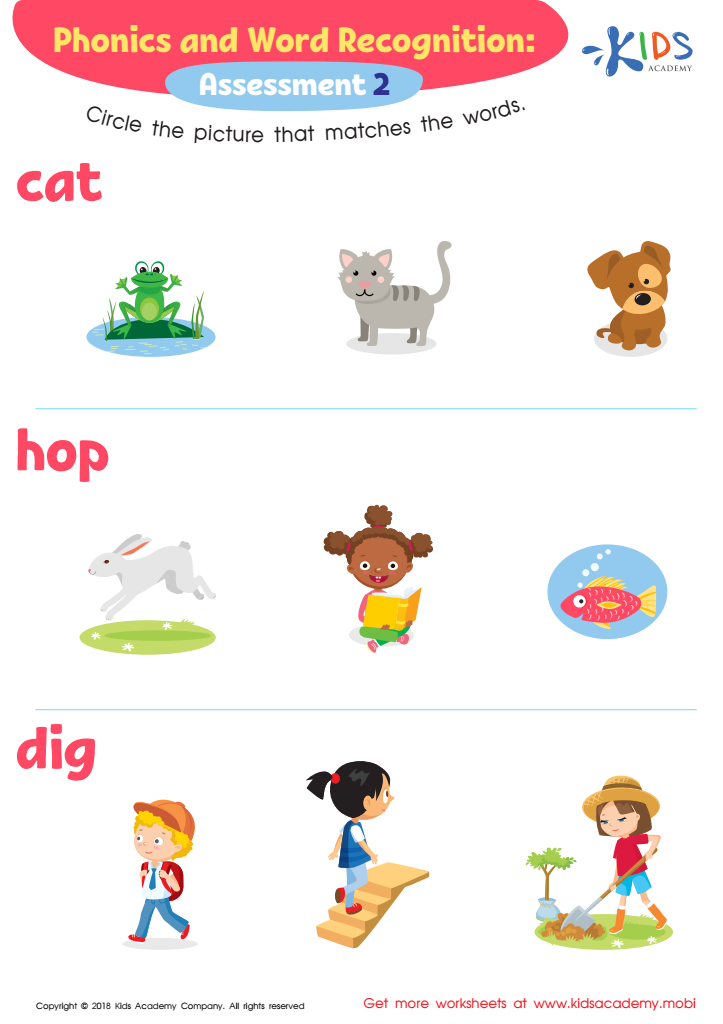

Phonological Awareness: Assessment 2 ELA Worksheet
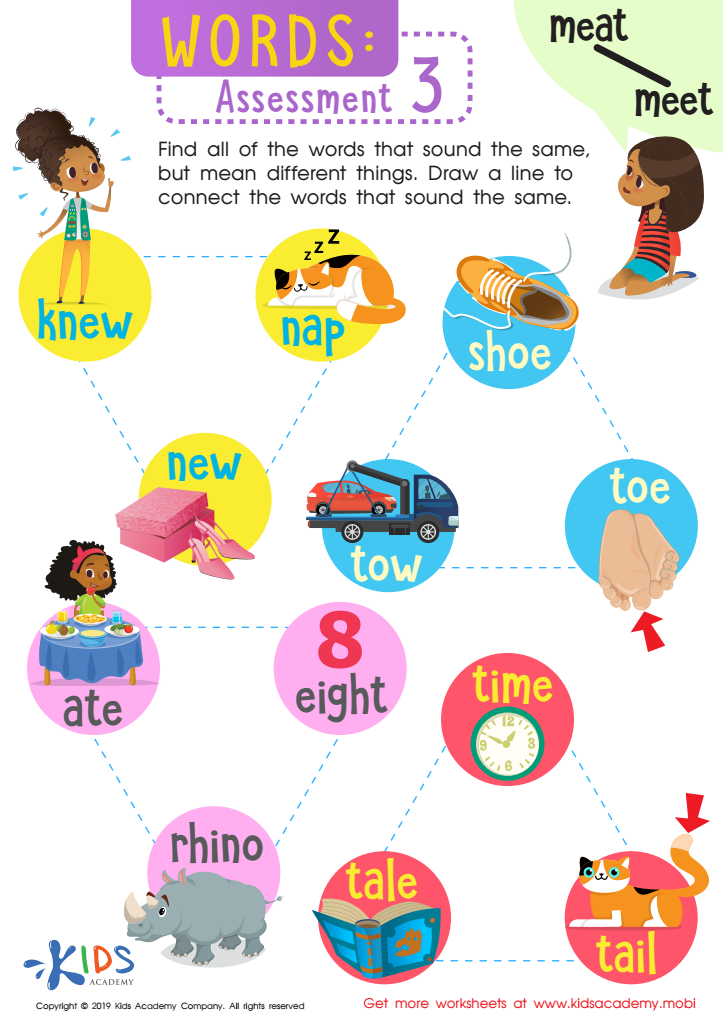

Words: Asessment 3 Worksheet
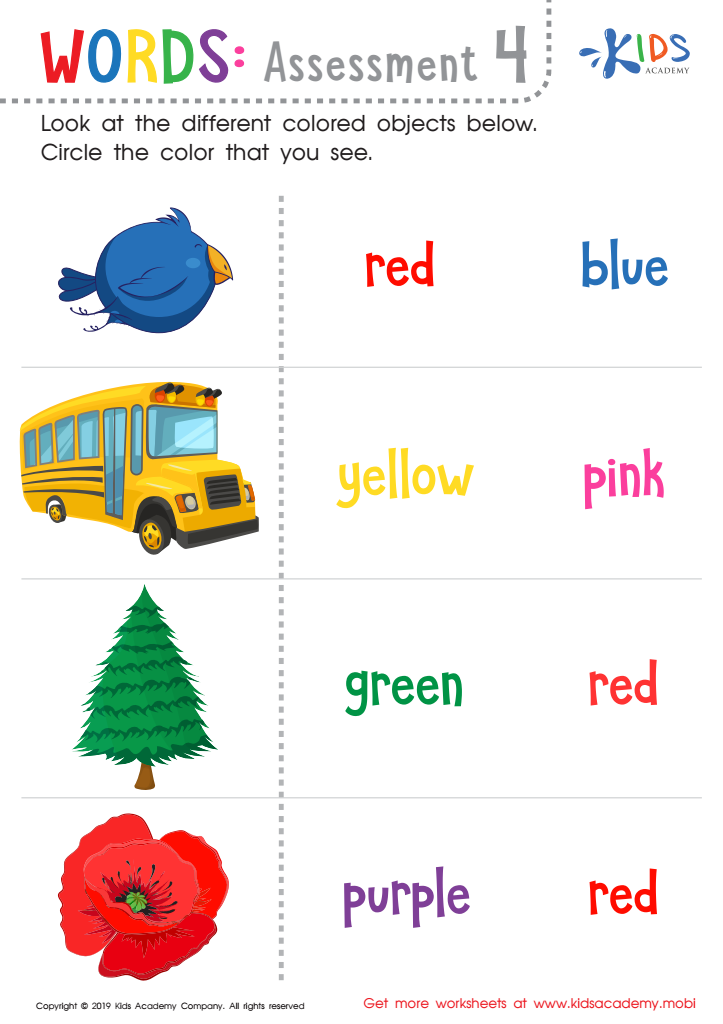

Words: Assessment 4 Worksheet
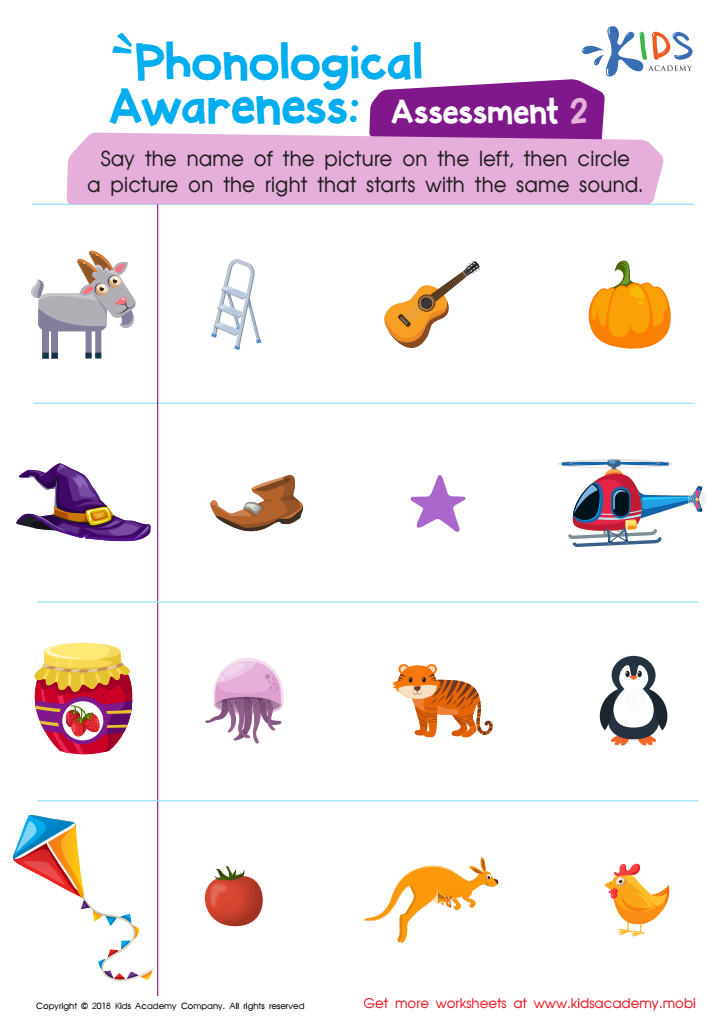

Phonological Awareness: Assessment 2 Worksheet
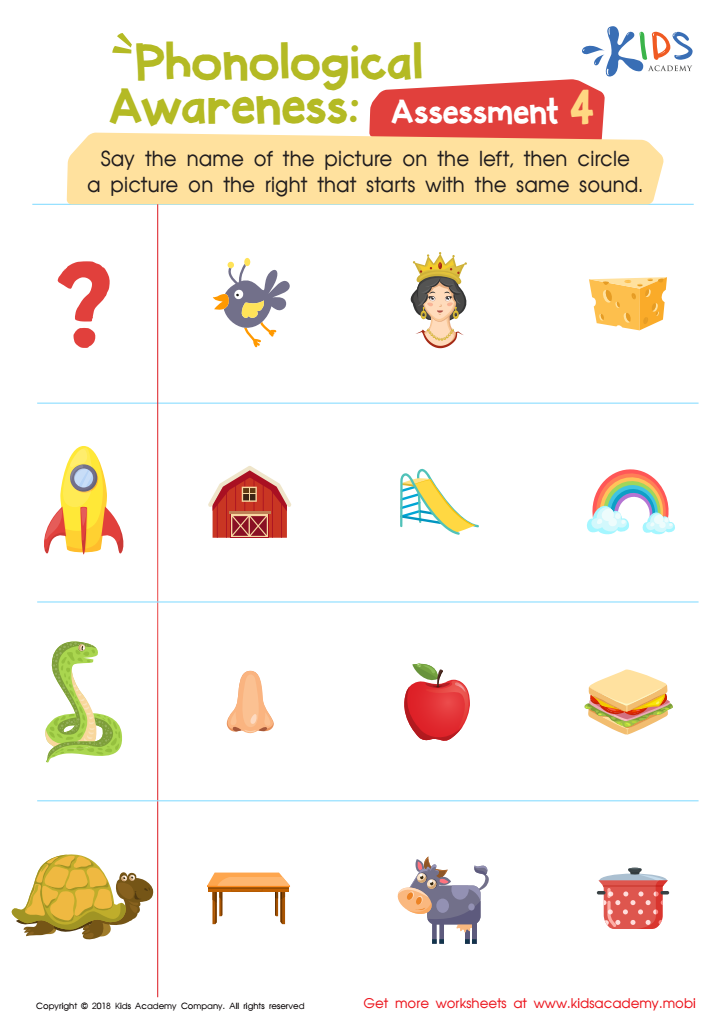

Phonological Awareness: Assessment 4 Worksheet
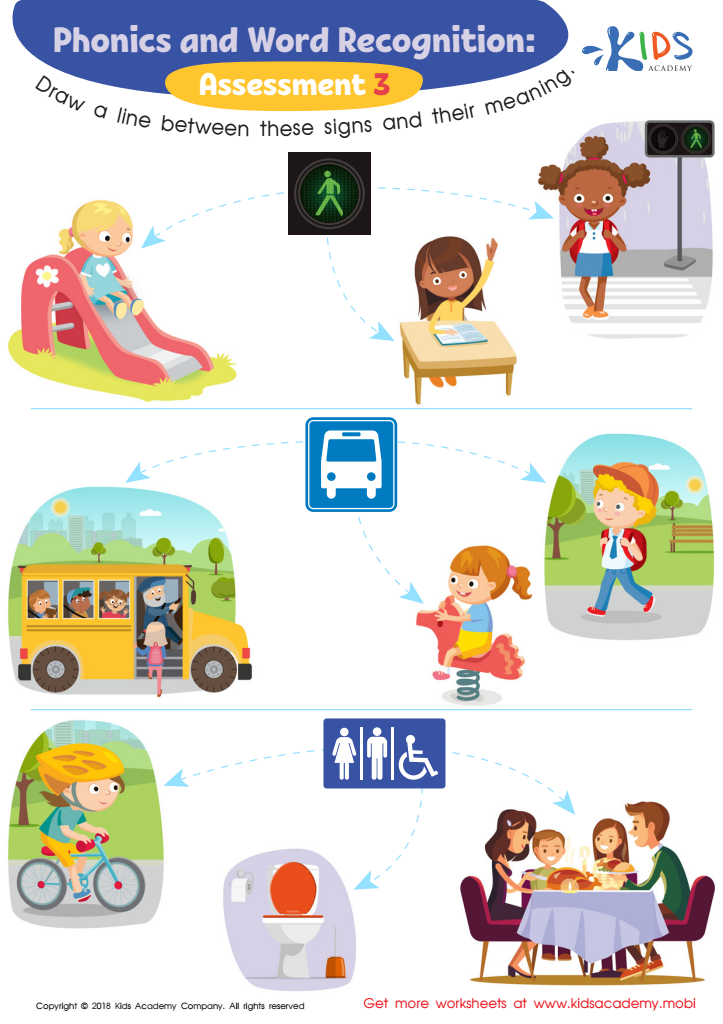

Phonological Awareness: Assessment 3 ELA Worksheet
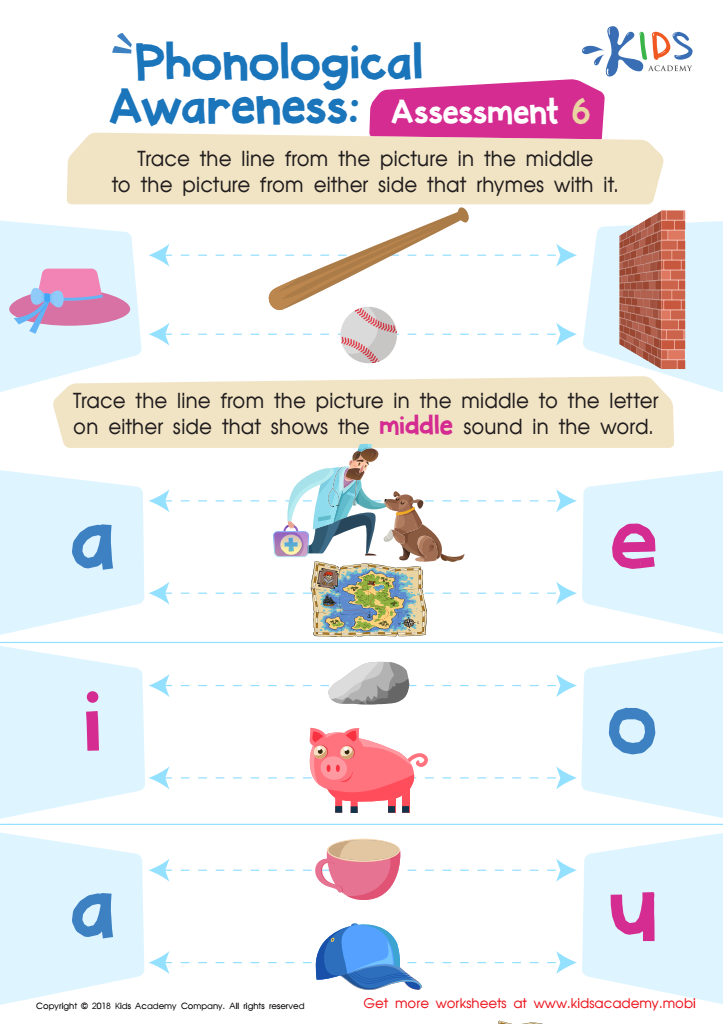

Phonological Awareness: Assessment 6 Worksheet
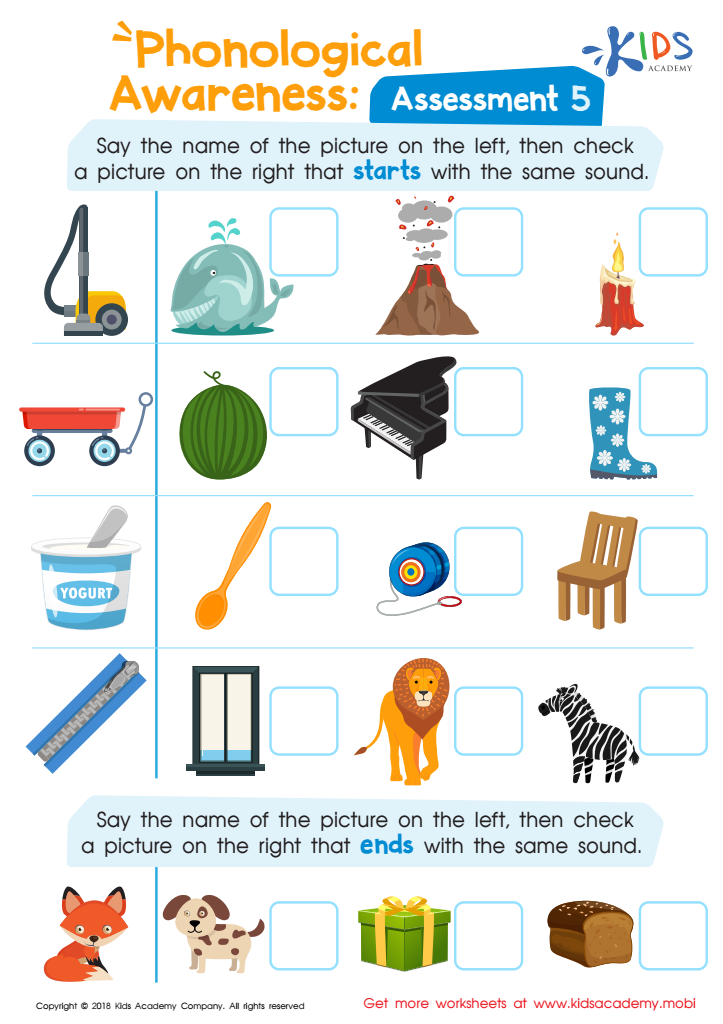

Phonological Awareness: Assessment 5 Worksheet
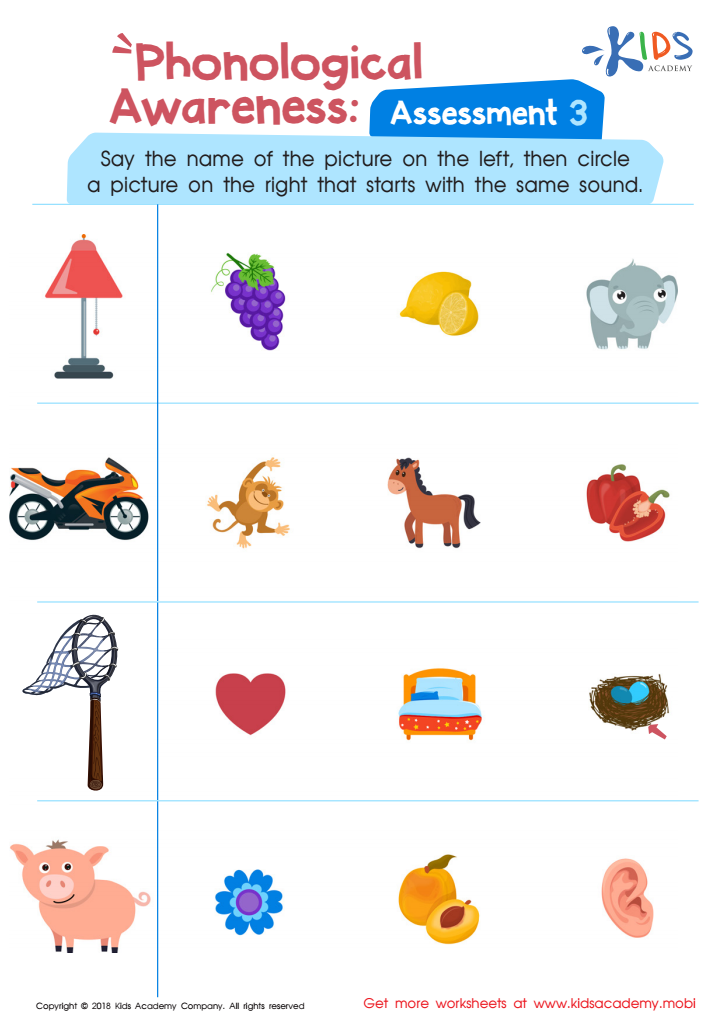

Phonological Awareness: Assessment 3 Worksheet


Phonological Awareness: Assessment 1 Worksheet
Elementary phonics activities for ages 3-6 are crucial for laying a strong foundation in reading and literacy development. For parents and teachers, engaging young learners in these activities promotes essential reading skills, helping them recognize letter sounds, blend phonemes, and develop a love for reading. Phonics plays a vital role in decoding words, which is foundational for fluency and comprehension.
Incorporating phonics activities into early education provides interactive and playful opportunities for children to learn, making the learning process enjoyable. Through songs, games, and hands-on tasks, young learners can become actively involved in their education, which enhances their motivation and retention of phonemic awareness.
Furthermore, phonics also aids in vocabulary expansion and fosters better writing skills as children begin to understand how letters form words. For parents, participating in phonics activities with their children reinforces learning at home, inspiring confidence and a comfort with literacy.
Overall, phonics activities serve as a fundamental stepping stone for early literacy, equipping children with the tools they need for academic success. It fosters a lifelong appreciation for reading by nurturing curiosity and creativity in young minds, establishing a solid mentoring influence from both parents and educators.
 Assign to My Students
Assign to My Students













